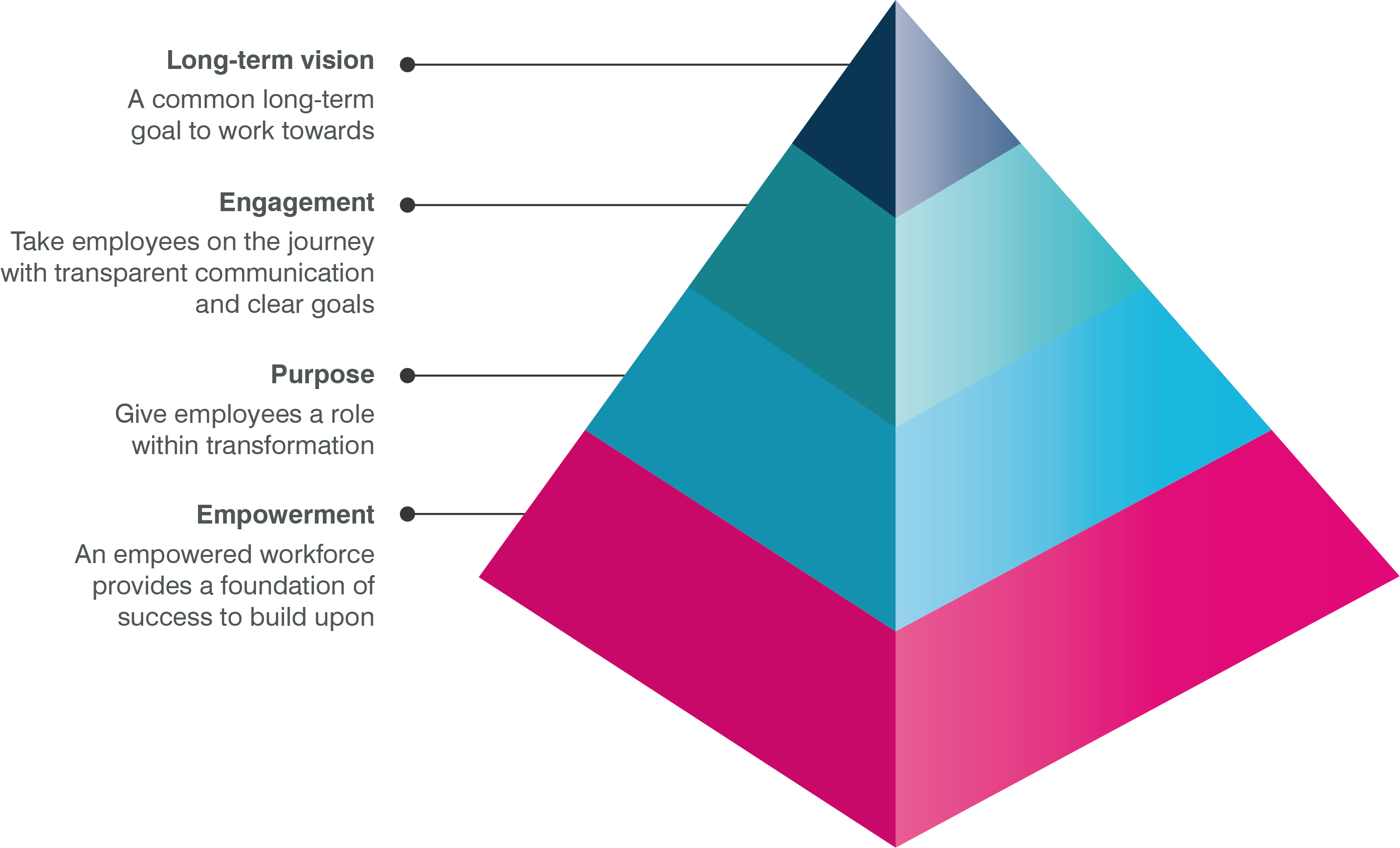
1 November 2023
The 2022 UK census showed the public are more trusting of other people than of the government*.
Trust between the public and the public sector has always been complicated, often reflecting the difficulties faced by society. Over the decades, trust has ebbed and flowed however, ‘2022 has seen trust at a record low’*.
Due to these uncertain and challenging times, trust in the public sector has never been more important. The public sector needs to be seen as improving the lives of the people that they serve and making more effective decisions with the public purse. Areas of the public sector need to regain the trust of their staff, and this is compounded by transforming the overall service they offer to the public. The way in which the public sector can be seen as trustworthy, is to be transparent in their operations, make logical decisions with evidence, be effective in delivering their services (and change) and ultimately behave in an ethical manner.
Cultivating trust amongst employees and ensuring there is a culture of trust, should be the priority for an organisation on their road to transformation. Without this foundation of trust, it will be difficult to deliver meaningful transformation.
BMT have identified a framework to develop trust with four core enablers: long-term vision, engagement, purpose and empowerment.

When utilised, they will establish and develop trust to ultimately facilitate successful transformation.
The full paper, available as a download, explores these enablers in more detail as they provide the basis for a strong culture of trust. They should be carefully considered at each stage to ensure the end goal is achieved. It is important for organisations to remember that building trust is a long-term investment and therefore must be properly planned for, invested in and consistently reviewed.
Learn more about how we can help you deliver complex change with our business transformation services.
* “Trust in Government, UK”, Office for National Statistics, July 13, 2022, accessed August 7, 2023.

Leigh is a Senior Consultant and started at BMT in 2021. She has experience in a wide range of projects across the lifecycle within public sector clients, including the Ministry of Defence and the Metropolitan Police. She particularly enjoys working with stakeholders to solve complex problems and building strong working relationships. Leigh also enjoys contributing to developing BMT’s management consulting capability by supporting a variety of internal tasks.

Shauni is a consultant based at BMT’s Plymouth Office. She joined BMT in 2021 and has prior experience working in media.
Within BMT, Shauni has worked in various areas across the business including Planning & Capability, Training Consultancy Services and a Project Management Office role in the Metropolitan Police.

N/A
The third article in our Bias series, this piece focusses on hindsight bias. It can have severe implications for project management, impacting the assessment of decisions, hindering learning, and contributing to overconfidence in (and in turn the potential jeopardising of) project success.

N/A
In recent years, bias in the workplace, both subconscious and overt, has come under intense scrutiny. In this bias series, we will be looking at some of the lesser-known workplace subconscious biases: what they are; how they affect you and your colleagues, and what you can do to tackle them. In this first article, we examine the negatives and - perhaps surprisingly - the positives of a bias that affects everyone nearly every day: optimism bias.

N/A
Confirmation Bias: what is it? How does it affect you? Can you overcome it? Welcome to the second article in our bias series on some of the lesser known subconscious biases in the workplace.

N/A
As maritime autonomous systems continue to develop at pace, robust regulations and safety assurance measures are required to ensure safety at sea.